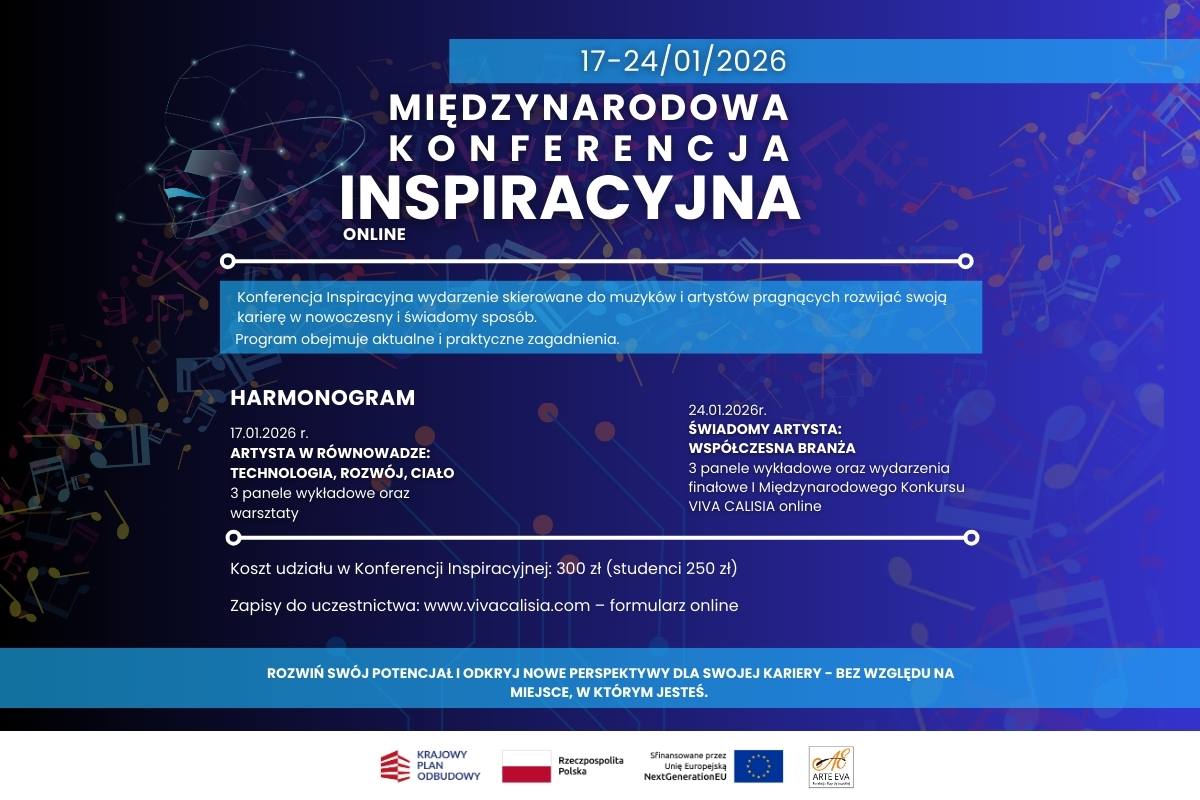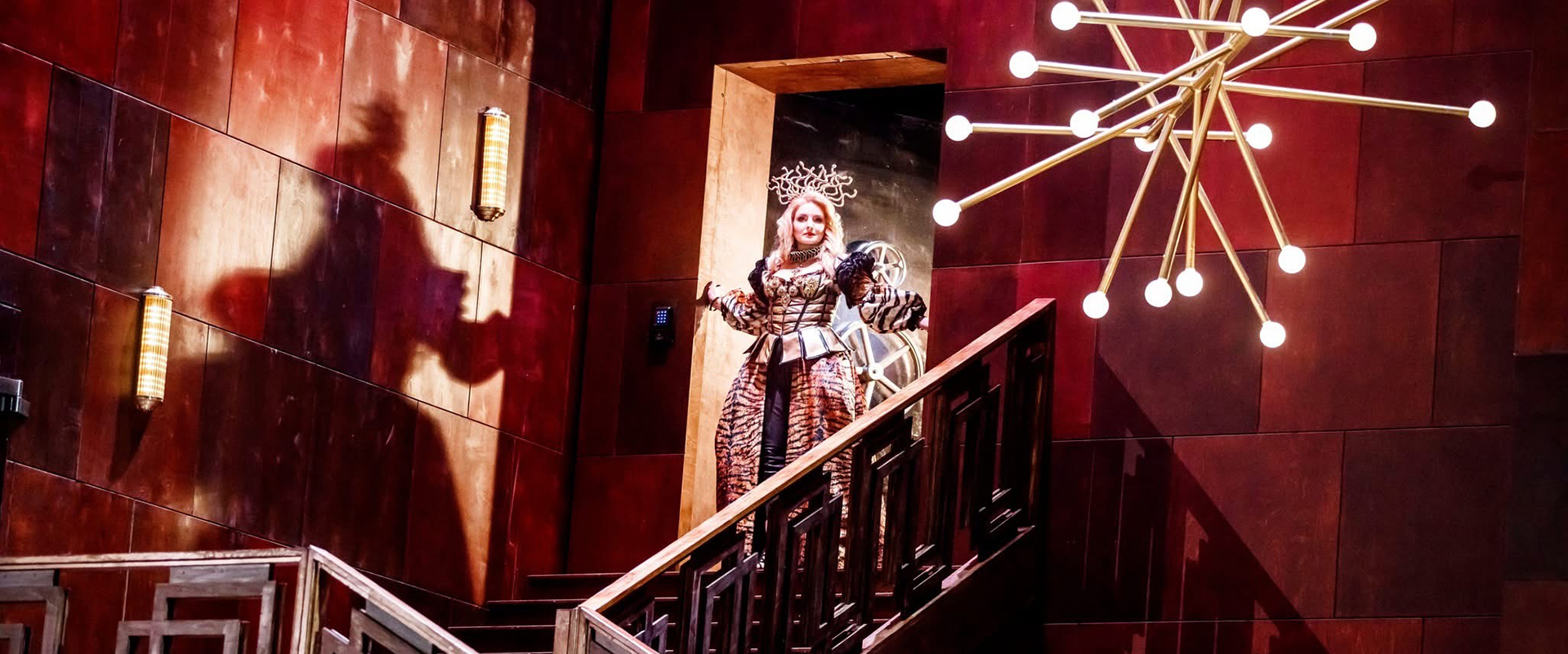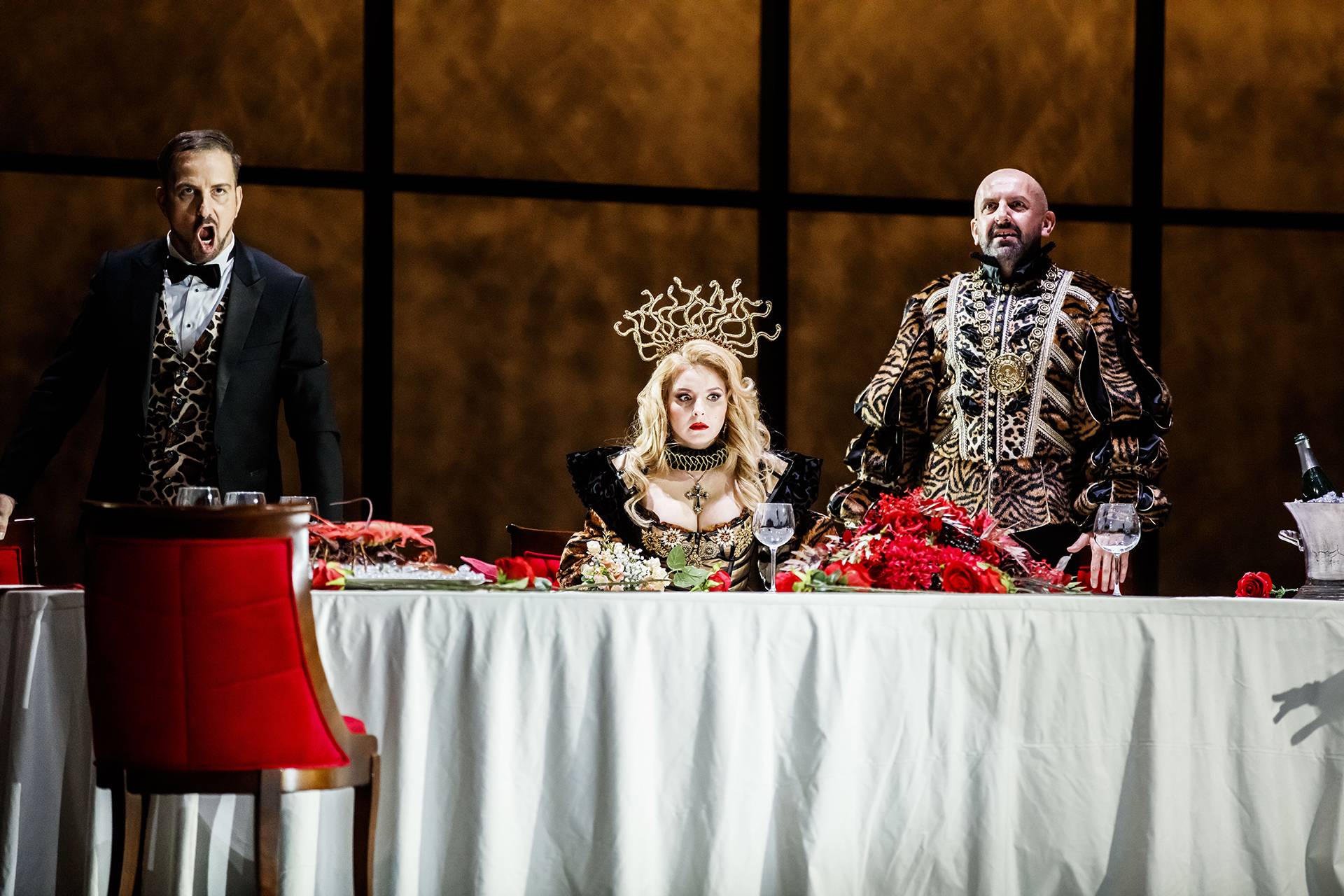 Benigna is an emotional rollercoaster – interview with Natalia Rubiś on her debut in Penderecki’s “The Black Mask”
Benigna is an emotional rollercoaster – interview with Natalia Rubiś on her debut in Penderecki’s “The Black Mask”
Agata Ubysz: You have recently posted on Facebook that six years ago you were rehearsing for the first Halka at the Wrocław Opera, and now you are making your debut with the Polish National Opera as Benigna in “The Black Mask” by Krzysztof Penderecki. Where does such choice of roles come from?
Natalia Rubiś: They “imposed themselves” on me, but it makes a lot of sense. Six years ago, having completed my studies at the Yale School of Music, I returned to Poland, and Halka was my first big role. It was also the first role from my target repertoire. I am extremely grateful to the then director of the Wrocław Opera Marcin Nałęcz-Niesiołowski who believed in me and gave me the opportunity to sing it. Thanks to Halka, I found my path. Having said that, when I compare that singer with the one who has just performed Benigna on the stage of the Polish National Opera, I can say a girl sang in Wrocław, and a woman in Warsaw.
Do these two characters have anything in common?
Their common feature is madness. The former’s madness is the result of unhappy love, while the latter is driven by continuous escape from her haunting past. Halka is a very simple and trustful girl, while Benigna, due to her difficult and turbulent youth, has learned to “cope” with life. Some may read her behavior as calculation, but in my opinion her choices are a way to survive and an attempt to create a semblance of a peaceful home.
You mentioned your target repertoire. What is it?
It includes roles for lirico spinto soprano. For non-experts, it is an operatic voice with a bright and lyrical timbre, but at the same time the ability to sing with greater strength and expression. It is able to break and “push” through a densely playing orchestra (hence its name), but it is also more flexible and lighter than the dramatic soprano.
The role of Benigna was a double debut, you sang this part for the first time in your career and for the first time on the Warsaw stage.
I am very happy about debuting with such an expressive character as Benigna and with such a wonderful group of artists who have taken part in this production. Working with Maestro Bassem Akiki and director Sir David Pountney was an incredible adventure, experience and lesson.
It was also the first time you had faced such a large role in Krzysztof Penderecki’s work.
The soprano parts in “Credo” and “Kaddish” I performed earlier were incomparably smaller than the role of Benigna. For some, the score may be difficult to learn and perform, but for me it has always been a great pleasure. Krzysztof Penderecki’s works resonate with me on an emotional and vocal level.
What is Benigna like from the musical perspective?
It is the most demanding role I have ever faced. Benigna is frequently considered one of the most difficult soprano parts in opera literature, in all aspects. Even memorizing it is a challenge. Nothing is obvious at the beginning, and you have to constantly return to the score. It is also the most demanding role in terms of fitness, because the composer does not give much time to calm breathing between the scenes. Benigna’s “Confession”, which is a real rollercoaster of the most powerful emotions, is twenty minutes of constant tension, a sense of fear, anger, hatred and helplessness. Everything is written down in the notes – difficult jumps, chromatisms, spasmodic progressions, screams. They are interwoven with lyrical fragments, sweet and delicate. Then I have literally ten minutes to go to the next two stages, two duets, demanding a similar swing of moods and emotions, and at the very end, I give in to complete madness. At one point Benigna sings “I am a rejected animal” and she is like that – animalistic, primal, even though at the beginning of the performance she behaves like a wonderful housewife, a lady. However, under the elegant clothes there is a wild animal forced to fight for survival all her life.
The reviews after the premiere say you have done a wonderful job with this extremely difficult role.
And I am ready for more big challenges… but of course within the limits of my voice. I am not giving up Mozart repertoire (I hope to make my debut in the part of Vitellia soon) or classical repertoire, but I will be adding more and more stronger roles, such as works by Richard Strauss (Arabella, Salome) or Janáček (Jenufa, Katia), Verdi (Aida, Odabella, Leonora) or Puccini (CioCioSan, Suor Angelica).
Thank you for your time.





